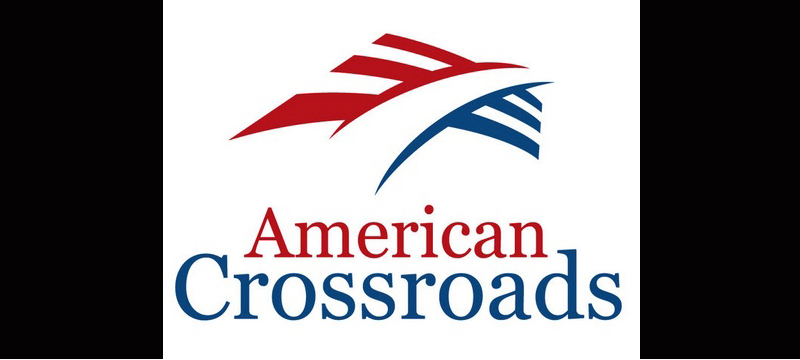DES MOINES, Iowa (AP) — The biggest Republican-leaning money machines are spending dramatically less to help the party ahead of the 2014 congressional elections, a year after big-dollar conservative groups poured millions into unsuccessful campaigns against President Barack Obama and Democratic candidates, and the GOP failed to retake the White House or the Senate.
Groups such as American Crossroads and the U.S. Chamber of Commerce no longer are willing to risk major investments on hard-line conservatives who embarrassed GOP leaders last fall and rattled the confidence of party donors. Many remain concerned after last month’s government shutdown highlighted Republican divisions.
“Is the malaise still there? Yes,” said Lisa Wagner, a Republican fundraiser in the Chicago area. “But they are nervous about giving in light of the shutdown.”
Outside spending on television ads designed to benefit Republican Senate candidates is down almost 60 percent compared with two years ago, according to spending reports provided to The Associated Press. There are signs that the shift is shaping the national fight for the Senate majority.
Republicans need six seats to win Senate control, a goal that strategists on both sides say is within reach, considering veteran Democratic retirements in GOP-leaning and swing-voting states, including Iowa and Michigan, but also in Montana, South Dakota and West Virginia.
The elections are a year away, but the slow start on the Republican side means that vulnerable Democrats haven’t had to devote substantial time or resources defending themselves from criticism. Instead, Democrats have been able to stockpile cash ahead of what probably will be nasty and expensive general elections.
At this point two years ago, the fight for the Senate was in full swing. Pro-GOP groups had spent $11.4 million on 2012 Senate races, twice as much as their Democratic rivals.
But as of last week, pro-Republican groups had spent just $4.8 million on television advertising. None of that money was spent in Iowa, one of a half-dozen states where Democratic retirements have given the GOP hope it hasn’t had in decades.
Much of that spending was in Kentucky where the Senate’s most powerful Republican, Minority Leader Mitch McConnell, is fighting challenges from the right and left.
Democratic-leaning groups had spent $3.3 million.
“Unlike previous cycles, we won’t be sending good money after substandard candidates with weak campaigns,” said Jonathan Collegio, a spokesman for the conservative super political action committee American Crossroads.
A year later, the ghosts of high-profile Senate losses, including Missouri, still linger.
By the end of 2011, pro-Republican outside groups, led by American Crossroads and its sister Crossroads GPS, spent more than $1.8 million against Democratic Sen. Claire McCaskill of Missouri. By Election Day, they had spent more than $11.5 million against her.
Along the way, then-U.S. Rep. Todd Akin emerged from a three-way primary, only to implode in August after suggesting publicly that female victims of “a legitimate rape” have the biological capacity to prevent pregnancy.
The party also suffered losses in Republican strongholds of North Dakota and Indiana.
Outside spending in American politics has exploded following a series of court decisions that loosened restrictions on political giving. Super PACs blossomed, and in 2012, conservatives tested their newfound strength by tapping wealthy businesses and their executives.
Of the roughly 100 groups that spent $1 million or more on political advertising in 2012, more than two-thirds were conservative or pro-Republican.
While the GOP so far has a relatively small spending advantage in 2014 Senate races, Republicans groups are expected to widen the gap.
“There’s no doubt that come next year, Republicans are going to outspend, outraise Democrats by extraordinary sums,” said Bill Burton of Priorities USA, the outside group that supported Obama.
Democrats are bracing for continued backlash from the troubled health care law rollout and tea party allies have been running ad campaigns highlighting Senate Democrats’ connections to the law. Some left-leaning groups are worried about having enough money to fight back.
“If the current disparity in spending continues, that’s obviously problematic,” said Josh Dorner, communication and advocacy director for the liberal outside group CAP Action.
But for now, establishment-minded groups such as Crossroads have been slow to act, and their absence has caught the tea party’s attention. It’s using the vacuum to strengthen its influence while recruiting like-minded candidates.
“Establishment donors are unhappy. They spent a lot of money and didn’t do well,” said Sal Russo, the Tea Party Express political director.
“We’ve been busy,” he added, noting that his organization has interviewed more than 60 candidates this year across 17 states.
The tug of war between such groups isn’t helping Republicans unify around strong candidates.
Iowa’s Senate contest should be a promising pickup opportunity for Republicans. But some candidates in the crowded field have little proven campaign experience.
Outside spending can be helpful but doesn’t always mean success.
Americans for Prosperity, a group backed by the conservative billionaire Koch brothers, saturated Iowa mailboxes and telephone lines recently to support conservative city council candidates. But they all lost.
___
Peoples reported from Boston. Associated Press writer David Eggert in Lansing, Mich., contributed to this report.
Copyright 2013 The Associated Press. All rights reserved. This material may not be published, broadcast, rewritten or redistributed.






